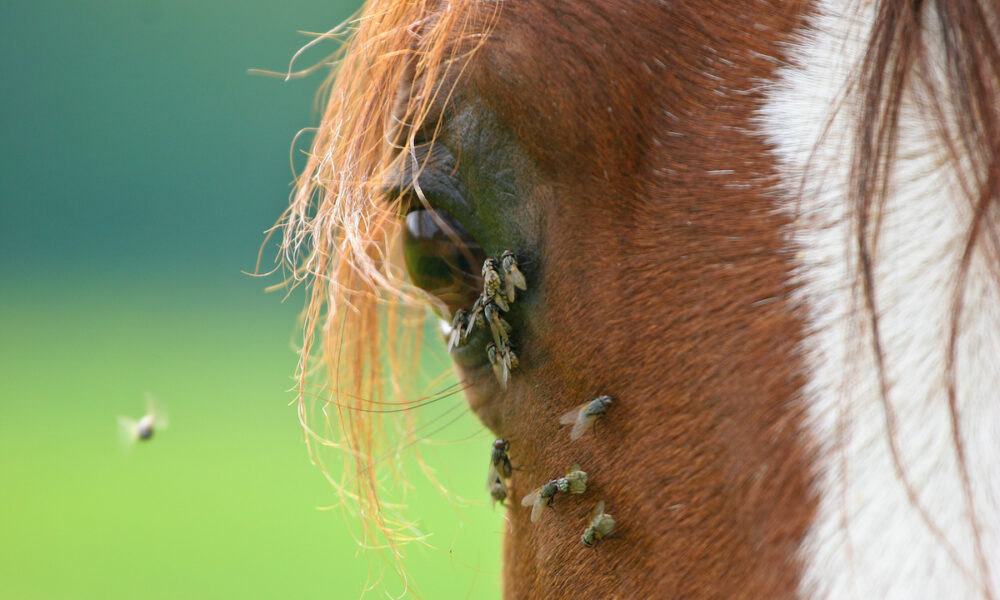
Have you ever had a pesky fly that is large and keeps trying to land on you and bite? If they get the opportunity to bite you, it is very painful? They especially love hanging around a warm outdoor space near water as they nip at your ankles and you see people randomly swatting them at a backyard barbeque.
That but is called a black horse fly or Tabanus atratus. They are notorious biters of horses and all things smaller, including humans, leaving behind painful sores on its victims.
Black Horse Flies are half an inch long in size. They are fast fliers despite their hefty size. Females feed on blood, and they are not averse to taking it from anything that has it. Their mouthparts cut open flesh, allowing blood to ooze out. They use a proboscis to sponge up the blood, leaving behind an open wound. These wounds can become infected, which poses a threat to livestock health. They are also very painful bites for humans. Males do not drink blood or bite. Males actually drink flower nectar and spend their days looking for females to mate with.
Males and females are both entirely black, but males have huge eyes that touch each other at the center of the face; the eyes of females are separated. It’s the size of the eyes that strikes curiosity in most people that see them. The color of the eyes may vary depending on the lighting. Facets compromising each eye reflect light, so sometimes their eyes appear black, sometimes silver and sometimes shades of their surroundings.
Species
This species is found in the eastern part of the continent. Females lay fertilized eggs on or near water sources. Maggots (larvae) feed on other aquatic insects and worms.
Female black horse fly species feed on animal blood. Male black horse flies feed on pollen. Horse flies are attracted towards dark moving objects and carbon-di-oxide, and this is how they locate prey.
Bites
It is easy to identify a horse fly bite by the redness, pain, swelling, and welts. If you notice any increased pain and swelling, you may have an infection which shows up a day or two later. Horse flies are not usually harmful to humans.
An infected horse fly bite shows up as a raised rash, dizziness, shortage of breath, and weak and swollen limbs.
Equine infectious anemia
Typically horse fly bites do not harm humans. These bites are, however, a problem for horses. Horse flies carry equine infectious anemia, which is also known as swamp fever. When a horse fly that is carrying equine infectious anemia bites an equine animal, they can transmit this life-threatening disease.
Mating
In late spring to summer, female and male horse flies emerge from their pupal stage. After mating in the summer, females require blood to develop the eggs, laid in a single mass of between 100 to 800 eggs or more on the underside of leaves or on plant stems.
Contact Us
Choose Proactive Pest Control for professional, comprehensive, guaranteed pest, and lawn management. The pros at Proactive will work diligently to gain your trust, confidence, and your total satisfaction. CALL US TODAY at 770-800-PEST to schedule a free, no-obligation inspection and evaluation for your home or business. Or, contact us for a FREE consultation. Let us show you why Proactive Pest Control is northeast Georgia’s first choice for pest, termite, and lawn services.